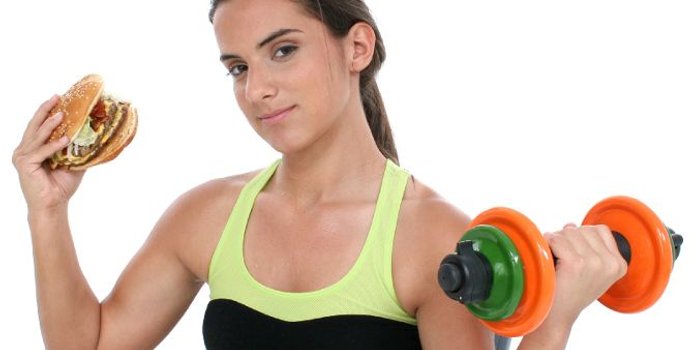Making changes to your diet is usually one of the first steps to losing weight, but do eating and exercise go hand in hand, and should you avoid eating before you work out? Forcing the body to use stored fuel should result in weight loss, but making that happen doesn't necessarily mean that food should be completely absent from the equation.
How Your Body Uses Food as FuelYour body uses fats, carbohydrates and proteins differently, but it is the carbohydrates that exist as the most readily available energy during a workout. Carbohydrate fuel is stored in the liver and the muscles as glycogen, and the body uses this fuel when you work out. When the body depletes its glycogen, it will begin to utilize fat stores. Using stored fat aids weight loss.
It is important to remember that when the body has run out of carbohydrates and begins working on those fat stores, your energy level will plummet, making it more difficult to work out. So, a balance must be struck between refueling your body and pushing it to use stored fat, so as to keep your workouts strong and your body injury-free.
Don't Treat Every Workout Like a MarathonAlthough topping off your glycogen stores in anticipation of a workout might mean eating before you head out to conquer the gym, the best way to do so is not indulge in a giant plate of pasta for every meal. Even marathon runners will time a large meal to occur several hours (if not an entire day) before the big race.
Consider the Type of WorkoutAlthough it might seem like common sense, fueling your body to participate in a quick half-hour gym session requires a different strategy than engaging in an hours long bike ride. As the body will generally possess about 30 to 40 minutes of available fuel at any time, there is no reason to eat anything additional prior to working out, unless it has been more than six hours since your last meal, or you intend on working out for more than 45 minutes.
Additionally, the time of day your workout occurs is important. Hitting the gym at dawn will mean your body might be more depleted of its glycogen stores than if you worked out after dinner. Eating an energy bar before a morning workout might be necessary, while you might not need additional food if you work out after lunch or dinner instead.
Listen to Your BodyKnowing how your body might react to food prior to a workout is knowledge that must be gained through trial and error and will guide the type and amount of food you need before a workout. While some runners might drink a simple cup of coffee before they head out in the morning and some gym rats might eat nothing more than a handful of nuts before arriving to work out, some individuals might require more fuel to feel at their best during a workout.
Listening to your body and recognizing when more fuel is required will allow you to have the strongest and most productive workout possible.



